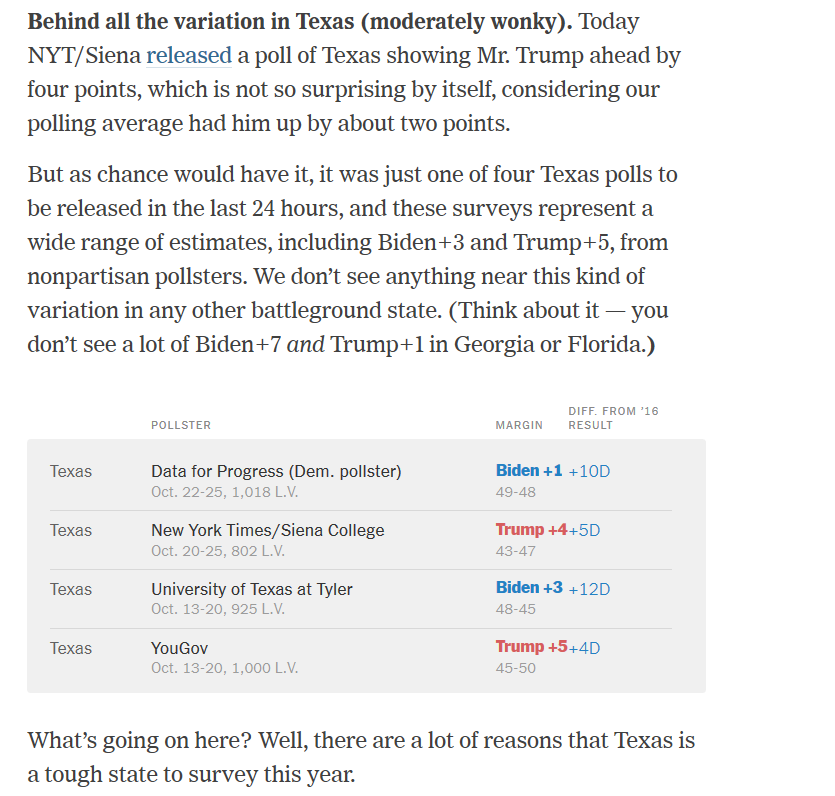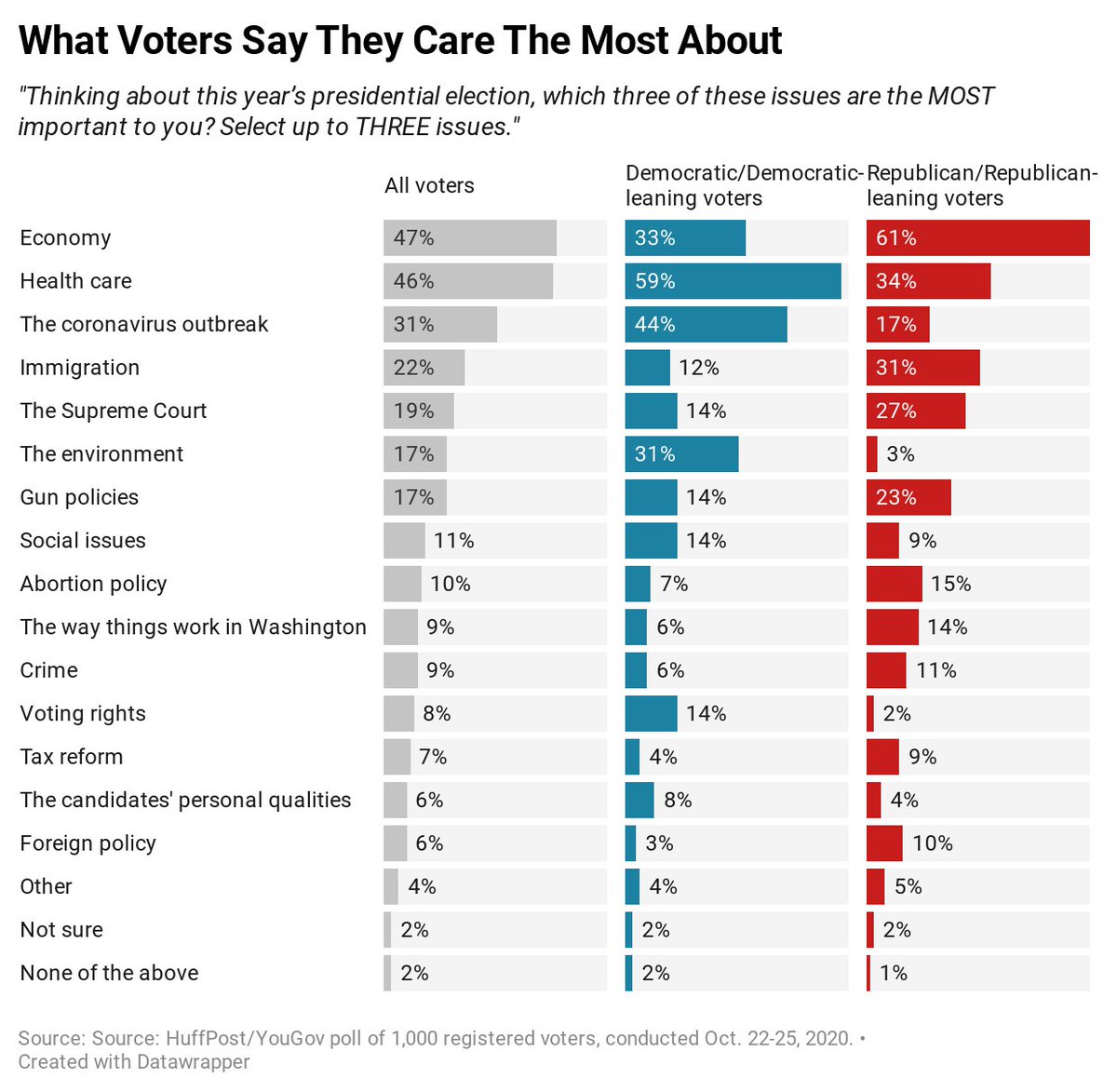
Pollsters should stand by their results, and journalists should help readers understand the broader context of the data they're providing. These are good examples of simultaneously doing both.
Anecdotally (I know...), this seems like something that's become more common all-around in the last couple of years, and it's a welcome development.
• • •
Missing some Tweet in this thread? You can try to
force a refresh















